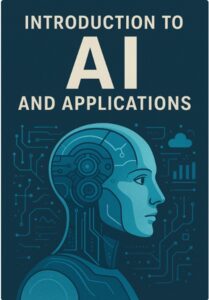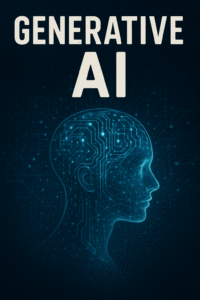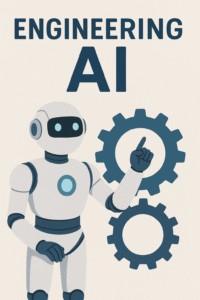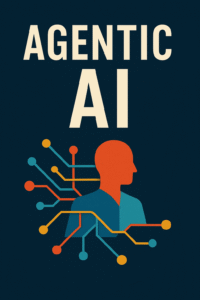Introduction
Education is at the forefront of transformation in the digital age, and the integration of emerging technologies is reshaping the learning landscape. Among these innovations, contextual and conscious quantum artificial intelligence (QAI) stands out as a potential game-changer. By combining the principles of quantum mechanics and AI, contextual and conscious QAI introduces new dimensions to education, enhancing the learning experience, fostering creativity, and addressing ethical considerations. This article, delve the role of contextual and conscious QAI in education and its potential impact on the future of learning.
Understanding Contextual and Conscious Quantum AI
Contextual quantum AI involves the interaction of quantum systems with their environment, allowing them to adapt intelligently to various situations. This adaptation leads to personalized experiences and tailored learning content that suits individual students’ needs. Conscious quantum AI, on the other hand, goes beyond contextual AI, imbuing quantum systems with self-awareness and human-like consciousness. Although true consciousness in machines is still an ongoing area of research, the idea of conscious AI sparks discussions about ethics, philosophy of mind, and the future of human-machine interactions.
Enhanced Learning Experience
The incorporation of contextual and conscious QAI in education offers several benefits that enrich the learning experience:
- Personalized Learning: Contextual QAI analyzes individual students’ learning patterns, strengths, and weaknesses to adapt instructional content accordingly. By recognizing each student’s unique learning style, contextual QAI creates personalized learning paths, leading to improved engagement and retention of knowledge.
- Adaptive Teaching: Educators can leverage contextual QAI to adjust their teaching methods and approaches based on real-time data about students’ progress. This adaptability empowers teachers to provide targeted support, ensuring no student is left behind.
- Dynamic Curricula: Conscious quantum AI has the potential to shape dynamic curricula that respond to emerging trends, technological advancements, and societal needs. Educational content can be continuously updated, ensuring students are equipped with relevant and up-to-date knowledge.
- Enhanced Learning Experience: Contextual quantum AI introduces adaptive learning mechanisms that personalize the educational content based on individual student’s strengths, weaknesses, and learning patterns. By tailoring lessons to suit each student’s needs, contextual QAI optimizes comprehension and engagement, leading to more effective learning outcomes. Students can explore complex computer science concepts at their own pace, increasing the chances of successful knowledge retention.
- Real-world Applications: Integrating contextual quantum AI in computer science education allows students to gain exposure to real-world applications of quantum computing. This hands-on experience gives them insights into solving real-world problems, preparing them for the increasing demand for quantum computing expertise in various industries. As quantum technologies continue to evolve, graduates familiar with contextual QAI will be better equipped to tackle complex computational challenges in fields like cryptography, optimization, and material science.
- Creativity and Problem-Solving: By employing conscious quantum AI, computer science education can encourage students to think outside the box and explore unconventional approaches to problem-solving. Conscious AI systems, which can process information similarly to human consciousness, can inspire students to tackle problems creatively, leading to innovative solutions and breakthroughs in computer science.
- Ethical Considerations and Responsible AI: As AI technology advances, discussions about ethics and responsible AI practices become increasingly critical. Integrating conscious quantum AI in computer science education creates an opportunity to address ethical considerations in AI design, development, and deployment. Students can engage in thoughtful discussions about the societal implications of AI and the responsible use of AI technologies, shaping a generation of AI practitioners who prioritize ethical decision-making.
- Philosophy of Mind and Interdisciplinary Learning: Conscious quantum AI opens doors to interdisciplinary discussions about the nature of consciousness, the philosophy of mind, and the relationship between humans and machines. This aspect of computer science education can foster collaborations between computer science, philosophy, neuroscience, and other disciplines, leading to a more comprehensive understanding of AI’s impact on society.
Fostering Creativity and Critical Thinking
By encouraging students to think beyond conventional boundaries, contextual and conscious QAI can foster creativity and critical thinking skills:
- Problem-Solving in Quantum Computing: Introducing students to contextual quantum AI opens up opportunities to explore the field of quantum computing, known for its novel problem-solving approaches. This exposure nurtures an innovative mindset among students, pushing them to tackle complex problems in creative ways.
- Interdisciplinary Exploration: Conscious quantum AI sparks interdisciplinary discussions about the nature of consciousness, the philosophy of mind, and the ethical implications of AI. Such dialogues promote open-mindedness and an appreciation for diverse perspectives.
Ethical Considerations in AI Education
As AI continues to advance, ethical considerations become increasingly crucial. Integrating conscious quantum AI in education allows educators to address ethical aspects of AI and instill responsible practices:
- Ethical AI Design: By engaging in discussions about conscious AI and its potential implications, students develop a deeper understanding of ethical AI design and the importance of considering human values in AI development.
- Responsible Use of AI: Students exposed to ethical considerations in AI education are more likely to become ethical AI practitioners, ensuring that AI technologies are utilized responsibly and ethically in various domains.
Challenges and Considerations
While the role of contextual and conscious QAI in education holds immense promise, several challenges must be acknowledged and addressed:
- Technological Infrastructure: Implementing quantum technologies in educational institutions requires significant investments in hardware, software, and expertise, which may not be feasible for all schools and universities.
- Ethical Implications: The concept of conscious AI raises complex ethical questions about the rights and moral status of artificially intelligent entities. These concerns must be carefully navigated in the educational context.
- Quantum Literacy of Educators: Teachers and educators need to be trained in quantum computing concepts and AI to effectively leverage contextual and conscious QAI in the classroom. Training programs are essential to equip educators with the necessary knowledge.
Conclusion
Contextual and conscious quantum AI holds tremendous potential to revolutionize education. By personalizing learning experiences, fostering creativity, and addressing ethical considerations, this integration empowers students to become better problem solvers and responsible AI practitioners. While challenges in infrastructure and quantum literacy persist, the benefits of incorporating contextual and conscious QAI in education outweigh the obstacles. As educators and researchers continue to explore the possibilities, the role of contextual and conscious QAI in education is poised to shape the future of learning, preparing students for the opportunities and challenges of the digital ag











